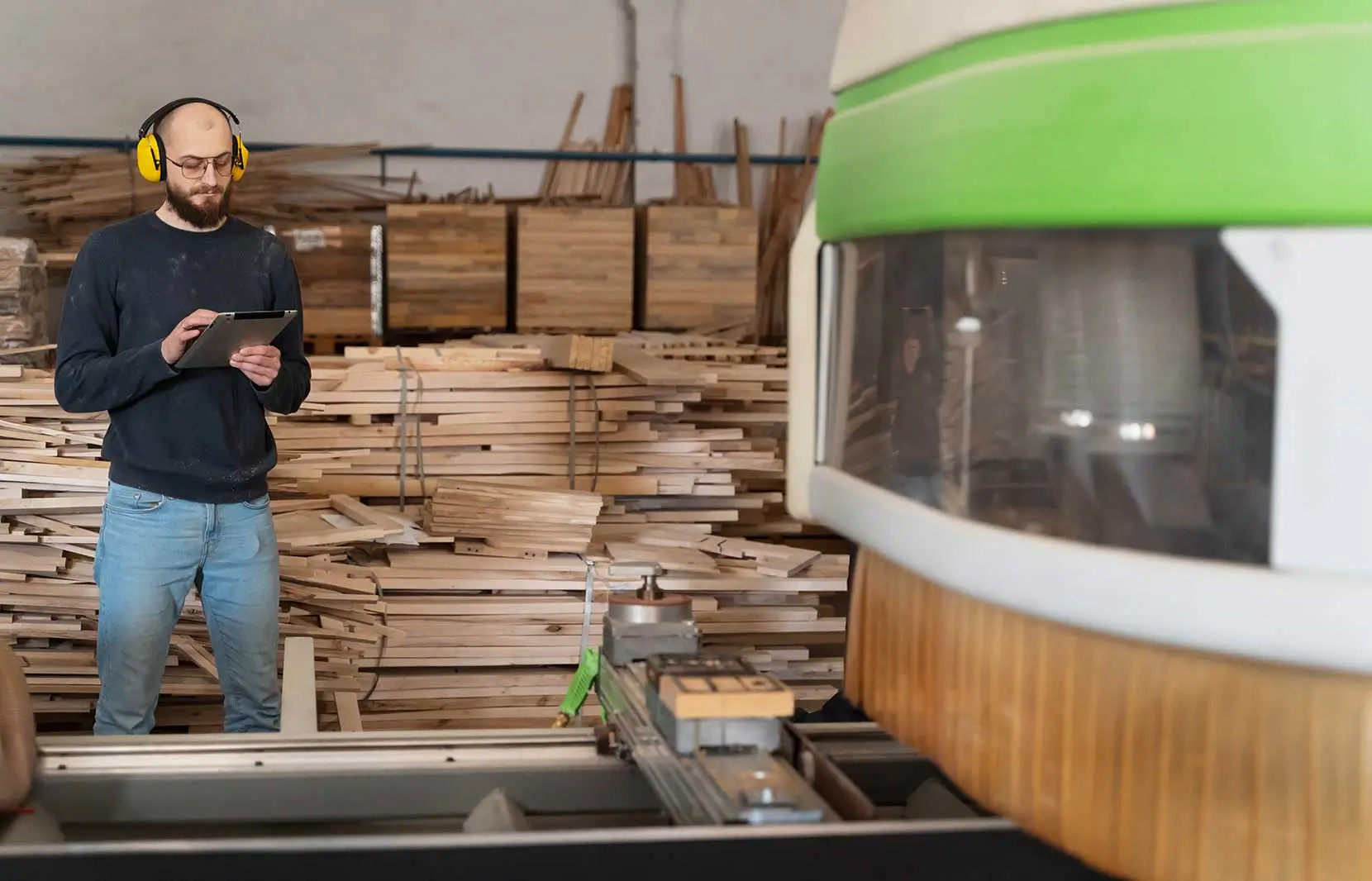Looking for ERP for wood industries?
The wood industry continues to evolve despite challenges. The industry has a unique array of demands, ranging from furniture production to sustainable construction standards. Enterprise Resource Planning (ERP) systems are powerful software platforms that can automate important business processes and provide massive benefits to your business. ERP software integrates key business activities like human resources, inventory management, production, and finances.
With the introduction of ERP, wood businesses can now tackle these challenges and thrive in the industrial market. This article outlines five advantages of incorporating an ERP system into your wood business:
Optimized Inventory Management
Managing one’s inventory poses a challenge to many professionals in the wood industry. However, with an ERP system, you can rest assured of improved inventory management.
Traditionally, various manual processes have served as the norm, which often leads to errors and costly mistakes. For instance, production can be affected if you run out of an important type of wood, and you might stack up storage costs if resources are stockpiled. ERP software prevents hiccups like this by orchestrating a masterpiece of lumbar management.
With ERP, you do not need spreadsheets to track every piece of wood in your business. This software offers an easily accessible digital map of your inventory, from type to number, and the exact location of wood in your factory. ERP can also help you to identify materials that have not been used to avoid overstocking. This can help your business save money and make your inventory top-notch.
Enhanced Production Planning and Scheduling
The impact of proper planning and scheduling in a woodshop cannot be overemphasized. By using an ERP system, you have an overview of your factory’s production process, from buying new materials to delivering final products. This point of view allows you to identify challenges quickly and maintain smooth operations in your factory.
ERP eliminates the frustrations of manual scheduling. ERP software considers factors like material availability and the skills of your staff to come up with an optimal schedule.
Additionally, ERP tracks progress in real-time and makes sure that your entire staff is in sync as they work towards timely completion. With an ERP system, you can easily adjust your schedule so that projects continue in a seamless fashion.
Increased Efficiency and Cost Reduction
Like most industries, the wood industry also strives to reduce costs while increasing efficiency. Your factory may be affected by increasing material prices, labor, and delays in manufacturing. ERP software puts your factory’s finances in check, leading to an increase in your revenue. By automating processes like data entry and reporting, an ERP system can help you save time and money so that your staff can focus on more strategic tasks.
Using an ERP reduces the amount of overstocking and production delays that may occur in your factory. Additionally, an ERP system provides a thorough analysis of costs, including buying of materials, labor, and administrative expenses. This analysis can help you identify and take advantage of opportunities for reducing costs and putting plans in place for your factory’s efficiency and profitability.
Improved Customer Relationship Management
Whether you own a small woodshop or handle major industrial projects, surpassing your client expectations earns you positive feedback and referrals. ERP software helps you improve your CRM and boost your relevance in the wood industry.
With an ERP system, you and your clients have 24/7 access to production schedules, order tracking, and other important data. This transparency ensures that clients are up to date with the entire process, thereby easing their fears and increasing their trust in your business.
ERP also provides a database of customers’ orders and preferences. You can capitalize on this database by customizing your service to each customer’s needs, thereby increasing customer satisfaction. ERP also allows for prompt responses to inquiries from your clients.
Enhanced Data-Driven Decision Making
Relying solely on instincts may not be the best way to move forward in the wood industry. Although experience and skill are priceless assets in the wood industry, data-driven decision-making is crucial to navigating the complex wood industry. ERP software is capable of analyzing data to identify trends that you might not notice. The system can identify consumer preferences, inventory turnover, wood profitability, and the best marketing strategies for your target customers. With these analyses at your command, you can make decisions based on facts rather than instincts, leading to increased business revenue.
The ERP system is also able to transform trends and data analysis into reliable forecasts, enabling you to stay ahead of the competition in the wood industry.
Final Thoughts
While software won’t replace the artisan’s touch, cutting-edge technology like Enterprise Resource Planning (ERP) software is important for surviving in the competitive wood industry. ERP software provides you with a ton of functions that can reform your business, from optimizing your inventory management and enhancing production to improving your Customer Relationship Management (CRM) and enhancing data-driven decision-making.
Contact Blue Lotus 360 for ERP for wood industries.













